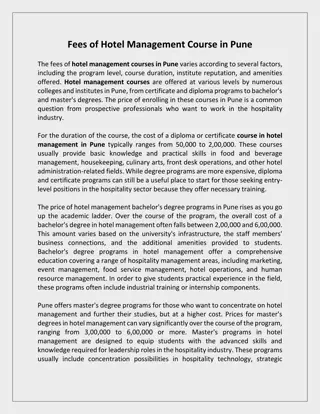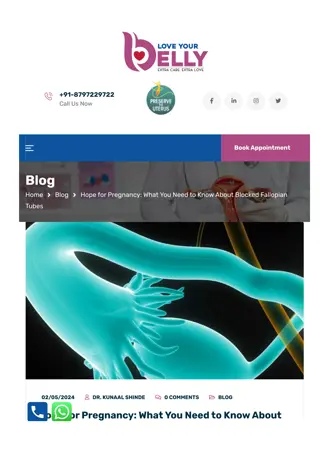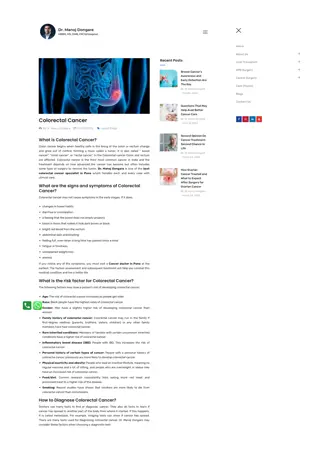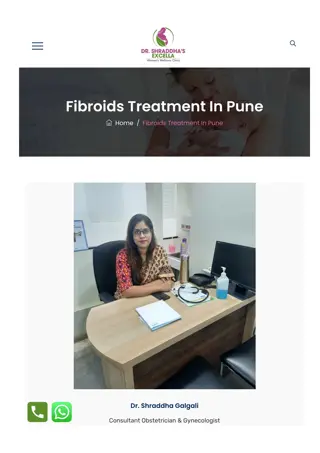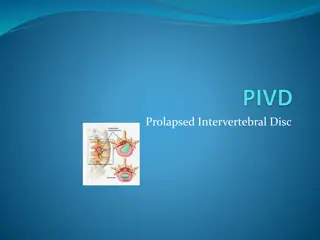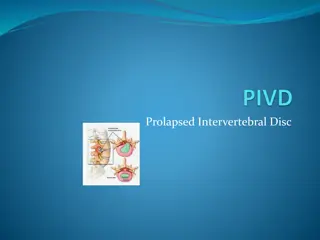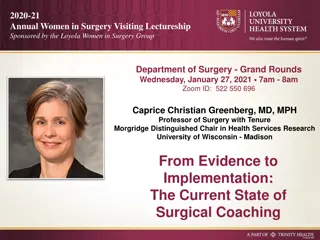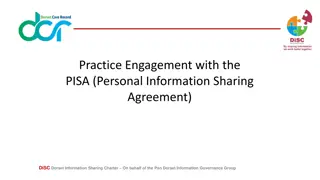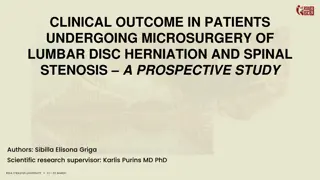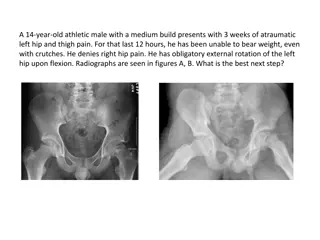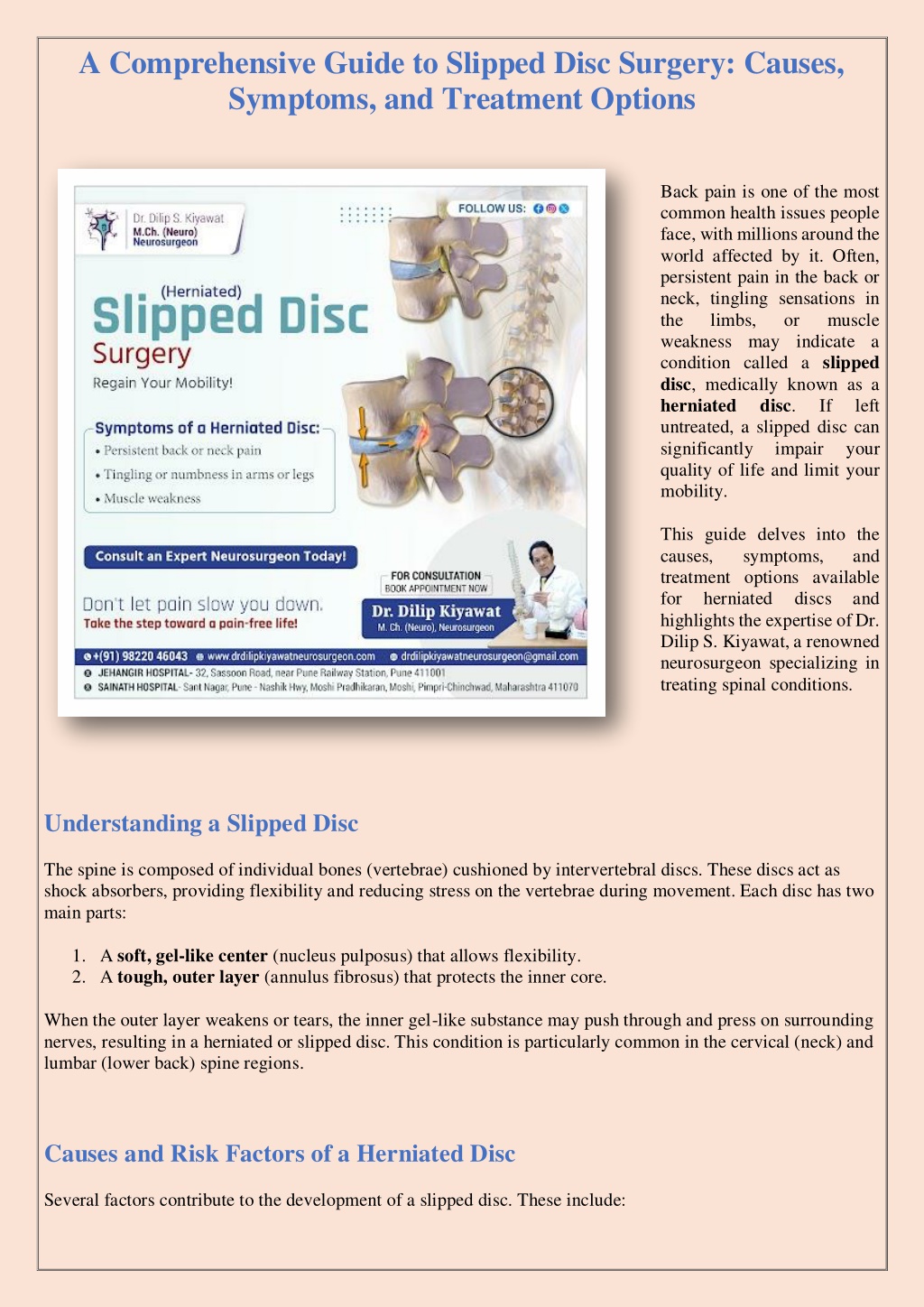
Slipped Disc Surgery in pune - Dr. Dilip Kiyawat
This is an informational flyer about Dr. Dilip S. Kiyawat, a neurosurgeon specializing in herniated (slipped) disc surgery. It highlights symptoms like persistent back pain, tingling, and muscle weakness. It encourages consultation for regaining mobi
Download Presentation

Please find below an Image/Link to download the presentation.
The content on the website is provided AS IS for your information and personal use only. It may not be sold, licensed, or shared on other websites without obtaining consent from the author. Download presentation by click this link. If you encounter any issues during the download, it is possible that the publisher has removed the file from their server.
E N D
Presentation Transcript
A Comprehensive Guide to Slipped Disc Surgery: Causes, Symptoms, and Treatment Options Back pain is one of the most common health issues people face, with millions around the world affected by it. Often, persistent pain in the back or neck, tingling sensations in the limbs, weakness may indicate a condition called a slipped disc, medically known as a herniated disc. untreated, a slipped disc can significantly quality of life and limit your mobility. or muscle If left impair your This guide delves into the causes, symptoms, treatment options available for herniated highlights the expertise of Dr. Dilip S. Kiyawat, a renowned neurosurgeon specializing in treating spinal conditions. and discs and Understanding a Slipped Disc The spine is composed of individual bones (vertebrae) cushioned by intervertebral discs. These discs act as shock absorbers, providing flexibility and reducing stress on the vertebrae during movement. Each disc has two main parts: 1.A soft, gel-like center (nucleus pulposus) that allows flexibility. 2.A tough, outer layer (annulus fibrosus) that protects the inner core. When the outer layer weakens or tears, the inner gel-like substance may push through and press on surrounding nerves, resulting in a herniated or slipped disc. This condition is particularly common in the cervical (neck) and lumbar (lower back) spine regions. Causes and Risk Factors of a Herniated Disc Several factors contribute to the development of a slipped disc. These include:
1. Age-Related Degeneration As we age, the discs lose their elasticity, becoming more prone to cracks and ruptures. This natural wear and tear can lead to herniation. 2. Injury or Trauma Sudden, forceful movements, such as lifting heavy objects improperly or a fall, can cause disc damage. 3. Lifestyle Factors Obesity: Excess weight puts additional strain on the spine, increasing the risk of disc issues. Sedentary Lifestyle: Lack of physical activity weakens the muscles that support the spine. 4. Repetitive Stress Certain professions or activities, such as heavy lifting, bending, twisting, or driving for extended periods, can increase strain on the spine. 5. Genetics A family history of spinal problems may predispose you to herniated discs. Symptoms of a Slipped Disc A herniated disc's symptoms can vary depending on its location and severity. Common symptoms include: 1. Persistent Back or Neck Pain Pain is often localized in the affected region, worsening with movement or physical activity. 2. Tingling or Numbness Compression of spinal nerves can lead to tingling or numbness in the arms, hands, legs, or feet. 3. Muscle Weakness The affected nerves may reduce the strength of muscles, making tasks like lifting objects or climbing stairs difficult. 4. Reduced Mobility Pain and discomfort can limit your range of motion, making it hard to perform everyday activities. 5. Sciatica In cases where the lower back is affected, pain may radiate down the leg, a condition known as sciatica.
When Should You See a Doctor? While mild symptoms may improve with rest and home care, seek medical attention if you experience: Pain that persists for weeks or worsens over time. Difficulty walking or maintaining balance. Loss of bowel or bladder control. Severe muscle weakness in the arms or legs. Diagnosis of a Herniated Disc A neurosurgeon or specialist typically begins with a thorough evaluation, which includes: Medical History: Discussing symptoms, lifestyle, and previous injuries. Physical Examination: Checking reflexes, muscle strength, and nerve sensitivity. Imaging Tests: MRI or CT scans to confirm the disc's condition and the extent of nerve compression. Treatment Options for Slipped Disc Treatment for a slipped disc aims to relieve pain, restore mobility, and prevent further damage. Options include: 1. Non-Surgical Treatments For most patients, conservative treatment is effective. Rest: Short-term rest, combined with avoiding activities that aggravate symptoms, helps reduce inflammation. Physical Therapy: Exercises to strengthen back muscles, improve posture, and increase flexibility. Pain Management: Over-the-counter medications or prescribed drugs like anti-inflammatories and muscle relaxants. Epidural Injections: Corticosteroid injections near the affected area to alleviate pain and inflammation. 2. Surgical Treatment When non-surgical treatments fail or symptoms become severe (such as nerve damage or loss of mobility), surgery may be necessary. Discectomy: The most common procedure, where the herniated portion of the disc is removed to relieve pressure on the nerves. Minimally Invasive Surgery: Advanced techniques allow surgeons to perform procedures with smaller incisions, reducing recovery time and risks. Why Choose Dr. Dilip S. Kiyawat for Slipped Disc Surgery? Dr. Dilip S. Kiyawat is a highly skilled neurosurgeon with years of experience in treating spinal disorders. Based in Pune and Nashik, he specializes in providing customized treatment plans tailored to each patient s needs.
Key Highlights of Dr. Kiyawats Practice Expertise in minimally invasive spine surgeries. Comprehensive diagnosis and treatment of herniated discs. Personalized patient care with a focus on faster recovery. Contact Information Jehangir Hospital, Pune Address: 32, Sasoon Rd, opposite Railway Station, Central Excise Colony, Sangamvadi, Pune, Maharashtra 411001 Sainath Hospital, Nashik Address: Sant nagar, Pune Nashik Hwy , Moshi Pradhikaran, Moshi, Pimpri Chinchwad, Maharashtra 411070 ?Call for Appointments: +91 98220 46043 ?Website: www.drdilipkiyawatneurosurgeon.com ?Email: drdilipkiyawatneurosurgeon@gmail.com Preventing a Slipped Disc While not all herniated discs are preventable, the following lifestyle changes can reduce your risk: Maintain a healthy weight. Practice good posture when sitting, standing, or lifting. Incorporate regular physical activity into your routine. Avoid smoking, as it accelerates disc degeneration. Conclusion Living with a slipped disc can be challenging, but it doesn t have to define your life. Early diagnosis and the right treatment can help you regain mobility and improve your quality of life. With Dr. Dilip S. Kiyawat s expertise, you can confidently take the first step toward recovery. Don t let pain hold you back consult an expert today and embrace a pain-free future!




